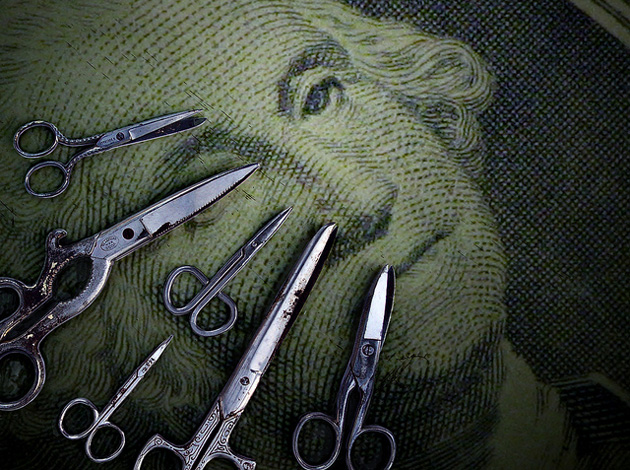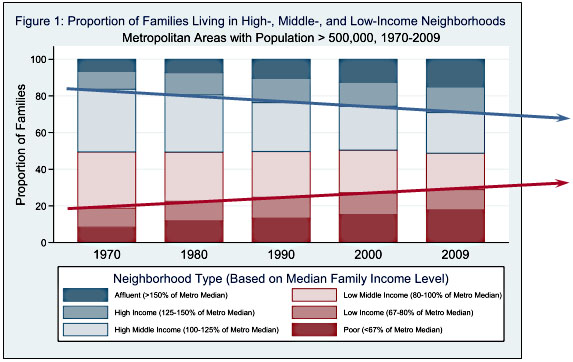
<a href="http://www.flickr.com/photos/truthout/5164044177/">Truthout.org</a>/Flickr
This story first appeared on the TomDispatch website.
I met Supreme Court Justice William Brennan in 1987 when I was creating a series for public television called In Search of the Constitution, celebrating the bicentennial of our founding document. By then, he had served on the court longer than any of his colleagues and had written close to 500 majority opinions, many of them addressing fundamental questions of equality, voting rights, school segregation, and—in New York Times v. Sullivan in particular—the defense of a free press.
![]() Those decisions brought a storm of protest from across the country. He claimed that he never took personally the resentment and anger directed at him. He did, however, subsequently reveal that his own mother told him she had always liked his opinions when he was on the New Jersey court, but wondered now that he was on the Supreme Court, “Why can’t you do it the same way?” His answer: “We have to discharge our responsibility to enforce the rights in favor of minorities, whatever the majority reaction may be.”
Those decisions brought a storm of protest from across the country. He claimed that he never took personally the resentment and anger directed at him. He did, however, subsequently reveal that his own mother told him she had always liked his opinions when he was on the New Jersey court, but wondered now that he was on the Supreme Court, “Why can’t you do it the same way?” His answer: “We have to discharge our responsibility to enforce the rights in favor of minorities, whatever the majority reaction may be.”
Although a liberal, he worried about the looming size of government. When he mentioned that modern science might be creating “a Frankenstein,” I asked, “How so?” He looked around his chambers and replied, “The very conversation we’re now having can be overheard. Science has done things that, as I understand it, makes it possible through these drapes and those windows to get something in here that takes down what we’re talking about.”
That was long before the era of cyberspace and the maximum surveillance state that grows topsy-turvy with every administration. How I wish he were here now—and still on the Court!
My interview with him was one of 12 episodes in that series on the Constitution. Another concerned a case he had heard back in 1967. It involved a teacher named Harry Keyishian who had been fired because he would not sign a New York State loyalty oath. Justice Brennan ruled that the loyalty oath and other anti-subversive state statutes of that era violated First Amendment protections of academic freedom.
I tracked Keyishian down and interviewed him. Justice Brennan watched that program and was fascinated to see the actual person behind the name on his decision. The journalist Nat Hentoff, who followed Brennan’s work closely, wrote, “He may have seen hardly any of the litigants before him, but he searched for a sense of them in the cases that reached him.” Watching the interview with Keyishian, he said, “It was the first time I had seen him. Until then, I had no idea that he and the other teachers would have lost everything if the case had gone the other way.”
Toward the end of his tenure, when he was writing an increasing number of dissents on the Rehnquist Court, Brennan was asked if he was getting discouraged. He smiled and said, “Look, pal, we’ve always known—the Framers knew—that liberty is a fragile thing. You can’t give up.” And he didn’t.
The Donor Class and Streams of Dark Money
The historian Plutarch warned us long ago of what happens when there is no brake on the power of great wealth to subvert the electorate. “The abuse of buying and selling votes,” he wrote of Rome, “crept in and money began to play an important part in determining elections. Later on, this process of corruption spread in the law courts and to the army, and finally, when even the sword became enslaved by the power of gold, the republic was subjected to the rule of emperors.”
 We don’t have emperors yet, but we do have the Roberts Court that consistently privileges the donor class.
We don’t have emperors yet, but we do have the Roberts Court that consistently privileges the donor class.
We don’t have emperors yet, but we do have a Senate in which, as a study by the political scientist Larry Bartels reveals, “Senators appear to be considerably more responsive to the opinions of affluent constituents than to the opinions of middle-class constituents, while the opinions of constituents in the bottom third of the income distribution have no apparent statistical effect on their senators’ roll call votes.”
We don’t have emperors yet, but we have a House of Representatives controlled by the far right that is now nourished by streams of “dark money” unleashed thanks to the gift bestowed on the rich by the Supreme Court in the Citizens United case.
We don’t have emperors yet, but one of our two major parties is now dominated by radicals engaged in a crusade of voter suppression aimed at the elderly, the young, minorities, and the poor; while the other party, once the champion of everyday working people, has been so enfeebled by its own collaboration with the donor class that it offers only token resistance to the forces that have demoralized everyday Americans.
Writing in the Guardian recently, the social critic George Monbiot commented,
“So I don’t blame people for giving up on politics…When a state-corporate nexus of power has bypassed democracy and made a mockery of the voting process, when an unreformed political system ensures that parties can be bought and sold, when politicians [of the main parties] stand and watch as public services are divvied up by a grubby cabal of privateers, what is left of this system that inspires us to participate?”
Why are record numbers of Americans on food stamps? Because record numbers of Americans are in poverty. Why are people falling through the cracks? Because there are cracks to fall through. It is simply astonishing that in this rich nation more than 21 million Americans are still in need of full-time work, many of them running out of jobless benefits, while our financial class pockets record profits, spends lavishly on campaigns to secure a political order that serves its own interests, and demands that our political class push for further austerity. Meanwhile, roughly 46 million Americans live at or below the poverty line and, with the exception of Romania, no developed country has a higher percent of kids in poverty than we do. Yet a study by scholars at Northwestern University and Vanderbilt finds little support among the wealthiest Americans for policy reforms to reduce income inequality.
Class Prerogatives
Listen! That sound you hear is the shredding of the social contract.
Ten years ago the Economist magazine—no friend of Marxism—warned: “The United States risks calcifying into a European-style class-based society.” And as a recent headline in the Columbia Journalism Review put it: “The line between democracy and a darker social order is thinner than you think.”
We are this close—this close!—to losing our democracy to the mercenary class. So close it’s as if we’re leaning way over the rim of the Grand Canyon waiting for a swift kick in the pants.
When Justice Brennan and I talked privately in his chambers before that interview almost 20 years ago, I asked him how he had come to his liberal sentiments. “It was my neighborhood,” he said. Born to Irish immigrants in 1906, as the harsh indignities of the Gilded Age brought hardship and deprivation to his kinfolk and neighbors, he saw “all kinds of suffering—people had to struggle.” He never forgot those people or their struggles, and he believed it to be our collective responsibility to create a country where they would have a fair chance to a decent life. “If you doubt it,” he said, “read the Preamble [to the Constitution].”
He then asked me how I had come to my philosophy about government (knowing that I had been in both the Kennedy and Johnson administrations). I don’t remember my exact words, but I reminded him that I had been born in the midst of the Great Depression to parents, one of whom had to drop out of school in the fourth grade, the other in the eighth, because they were needed in the fields to pick cotton to help support their families.
Franklin Roosevelt, I recalled, had been president during the first 11 years of my life. My father had listened to his radio “fireside chats” as if they were gospel; my brother went to college on the G.I. Bill; and I had been the beneficiary of public schools, public libraries, public parks, public roads, and two public universities. How could I not think that what had been so good for me would be good for others, too?
That was the essence of what I told Justice Brennan. Now, I wish that I could talk to him again, because I failed to mention perhaps the most important lesson about democracy I ever learned.
On my 16th birthday in 1950, I went to work for the daily newspaper in the small East Texas town where I grew up. It was a racially divided town—about 20,000 people, half of them white, half of them black—a place where you could grow up well-loved, well-taught, and well-churched, and still be unaware of the lives of others merely blocks away. It was nonetheless a good place to be a cub reporter: small enough to navigate but big enough to keep me busy and learning something new every day. I soon had a stroke of luck. Some of the old-timers in the newsroom were on vacation or out sick, and I got assigned to report on what came to be known as the “Housewives’ Rebellion.” Fifteen women in town (all white) decided not to pay the Social Security withholding tax for their domestic workers (all black).
They argued that Social Security was unconstitutional, that imposing it was taxation without representation, and that—here’s my favorite part—”requiring us to collect [the tax] is no different from requiring us to collect the garbage.” They hired themselves a lawyer—none other than Martin Dies, Jr., the former congressman best known, or worst known, for his work as head of the House Committee on Un-American Activities in the witch-hunting days of the 1930s and 1940s. They went to court—and lost. Social Security was constitutional, after all. They held their noses and paid the tax.
The stories I helped report were picked up by the Associated Press and circulated nationwide. One day, the managing editor, Spencer Jones, called me over and pointed to the AP ticker beside his desk. Moving across the wire was a notice citing the reporters on our paper for the reporting we had done on the “rebellion.” I spotted my name and was hooked. In one way or another, after a detour through seminary and then into politics and government, I’ve been covering the class war ever since.
Those women in Marshall, Texas, were among its advance guard. Not bad people, they were regulars at church, their children were my classmates, many of them were active in community affairs, and their husbands were pillars of the business and professional class in town. They were respectable and upstanding citizens all, so it took me a while to figure out what had brought on that spasm of reactionary defiance. It came to me one day, much later: they simply couldn’t see beyond their own prerogatives.
Fiercely loyal to their families, to their clubs, charities, and congregations—fiercely loyal, in other words, to their own kind—they narrowly defined membership in democracy to include only people like themselves. The black women who washed and ironed their laundry, cooked their families’ meals, cleaned their bathrooms, wiped their children’s bottoms, and made their husbands’ beds, these women, too, would grow old and frail, sick and decrepit, lose their husbands and face the ravages of time alone, with nothing to show for their years of labor but the creases on their brows and the knots on their knuckles. There would be nothing for them to live on but the modest return on their toil secured by the collaborative guarantee of a safety net.
The Unfinished Work of America
In one way or another, this is the oldest story in America: the struggle to determine whether “we, the people” is a moral compact embedded in a political contract or merely a charade masquerading as piety and manipulated by the powerful and privileged to sustain their own way of life at the expense of others.
I should make it clear that I don’t harbor any idealized notion of politics and democracy. Remember, I worked for Lyndon Johnson. Nor do I romanticize “the people.” You should read my mail and posts on right-wing websites. I understand the politician in Texas who said of the state legislature, “If you think these guys are bad, you should see their constituents.”
But there is nothing idealized or romantic about the difference between a society whose arrangements roughly serve all its citizens (something otherwise known as social justice) and one whose institutions have been converted into a stupendous fraud. That can be the difference between democracy and plutocracy.
Toward the end of Justice Brennan’s tenure on the Supreme Court, he made a speech that went to the heart of the matter. He said:
“We do not yet have justice, equal and practical, for the poor, for the members of minority groups, for the criminally accused, for the displaced persons of the technological revolution, for alienated youth, for the urban masses…Ugly inequities continue to mar the face of the nation. We are surely nearer the beginning than the end of the struggle.”
And so we are. One hundred and fifty years ago, Abraham Lincoln stood on the blood-soaked battlefield of Gettysburg and called Americans to “the great task remaining.” That “unfinished work,” as he named it, remained the same then as it was when America’s founding generation began it. And it remains the same today: to breathe new life into the promise of the Declaration of Independence and to assure that the Union so many have sacrificed to save is a union worth saving.
Bill Moyers has received 35 Emmy awards, nine Peabody Awards, the National Academy of Television’s Lifetime Achievement Award, and an honorary doctor of fine arts from the American Film Institute over his 40 years in broadcast journalism. He is currently host of the weekly public television series Moyers Company and president of the Schumann Media Center, a non-profit organization which supports independent journalism. He delivered these remarks (slightly adapted here) at the annual Legacy Awards dinner of the Brennan Center for Justice, a non-partisan public policy institute in New York City that focuses on voting rights, money in politics, equal justice, and other seminal issues of democracy. This is his first TomDispatch piece. To stay on top of important articles like these, sign up to receive the latest updates from TomDispatch.com here.
Follow TomDispatch on Twitter and join us on Facebook or Tumblr. Check out the newest Dispatch Book, Ann Jones’s They Were Soldiers: How the Wounded Return From America’s Wars—The Untold Story.














